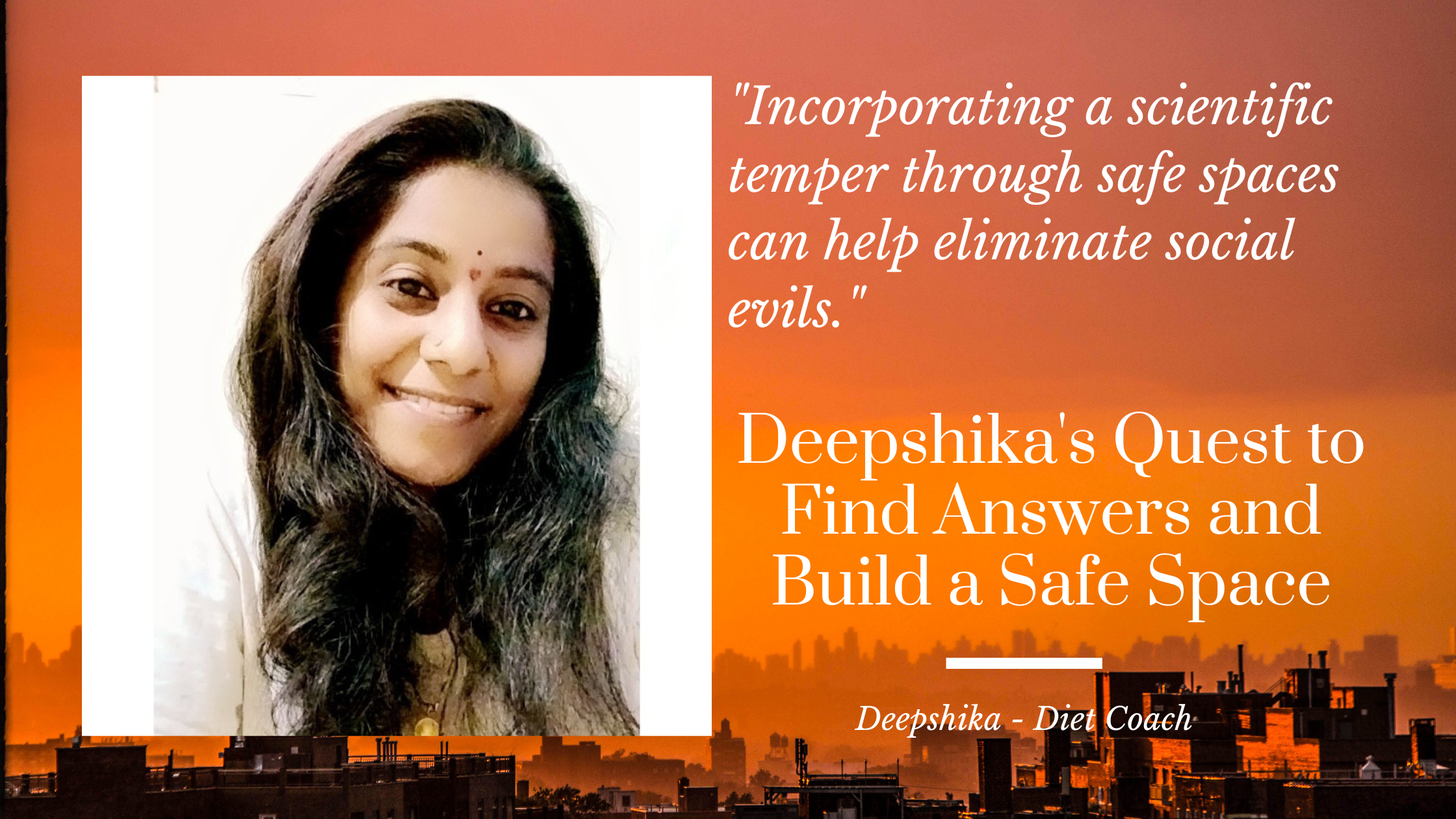“Incorporating a scientific temper through safe spaces can help eliminate social evils.”
Deepshika Gadhthy, a diet coach at Healthifyme, worked towards addressing the stigma of menstruation by educating young girls about menstrual hygiene and debunking myths. It was a transformative journey and continues to impact lives. Here’s a glimpse of her journey in a conversation with Rubaroo.
Engaging in Changemaking through Rubaroo
Deepshika’s introduction to Rubaroo was through a Gender Mela organized at her college. She aspired to be a part of the Agaaz-e-Baatcheet program but couldn’t make it. However, she was part of The Dialogue Project, an initiative supported by Rubaroo. That was the turning point for her as she connected with the core Rubaroo team with a zeal for change and enrolled in the Changemaker-Changeloomer Program – 2020.
After months of waiting and anxiety, Deepshika gets a call on one fine day she’s selected for the fellowship. Her project involved educating adolescents on gender, sex, and menstruation by conducting sessions and workshops in different schools. Excited, she prepares for the journey, but little did she know what would happen.
“On the morning of the first day of the workshop, my grandmother passed away. I joined the workshop only to realize I needed some time. And that’s when I opened up and shared what I had just been through, and Neha and Anuja were there for me.”
My Learning Curve
“I connected with health professionals and had girls come to me and confess that they thought menstruation was bad and helpless, trying to understand why bleeding occurs. The girls were confined to a room with separate utensils and were treated as though they caught some disease. They weren’t allowed in temples or any religious places.”
Deepshika looked for answers everywhere, connected with faith leaders – most of whom attributed menstruation to impure blood being flushed. As a science student, she couldn’t fathom this and opposed it. Finally, she found a satisfactory answer through a Buddhist monk and aspired to learn more.
Saying No is as Essential as Saying Yes
Executing the project amid the pandemic was challenging for Deepshikha, but she aced it beautifully. However, it wasn’t smooth sailing – sometimes she had to say – No. And that’s when she realized that prioritizing your needs and requirements is paramount. She says our generation is plagued by an issue of saying yes to everything – even at the cost of one’s well-being. And that she finds it highly problematic and believes one should say yes – after thoroughly analyzing things.
“We commit many things without knowing, only to realize it won’t work out. Rubaroo taught me that saying no is a safer option sometimes. Yes, kuch din difficult hoga, but you’ll be happy at the end of the day. Khudku maar kar jeene se acha hai na bolna. Few organizations asked for offline sessions during the pandemic. However, I wasn’t ready for it, even though it was the perfect workplace, and I had to say – No.”
The Duality of Life
Having a direct outreach of 5,000+ young girls, Deepshikha believes in the need for safe spaces in our homes and outside. According to her, we all lead dual lives, and the lack of safe space contributes to conflicts and isolation.
“Our parents didn’t have access to spaces like Rubaroo, and we need these spaces for adults – to learn, unlearn and re-learn, be vulnerable, and have conversations. It will pave the way for a safe society for the younger generation. Our vulnerabilities need a place, kahi na kahi you need a break to tell ki mere yeh hua hai, aur jab yeh safe space banega, toh you will feel like, iske saath bhi yeh hua hai – matlab hum sab same cheez se guzar rahe hai bas tarika alag hai sabka.”
Lastly, she aims to see Rubaroo working with young adults and parents to create a safe space and instil its values.



Leave a Reply